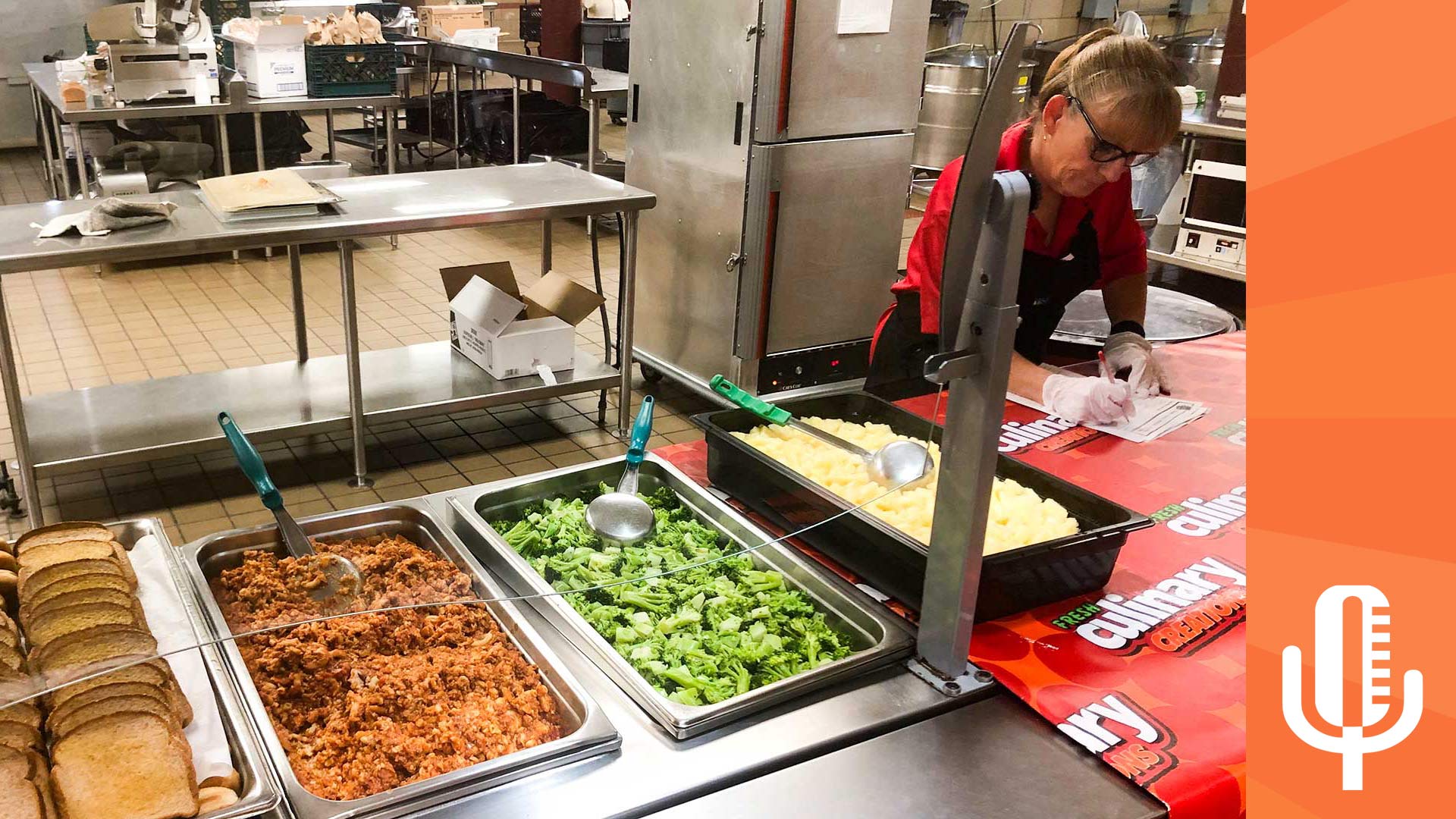 An Arizona lawmaker wants ultra-processed foods out of school lunches.
An Arizona lawmaker wants ultra-processed foods out of school lunches.
The Buzz for January 17, 2025

A Republican Arizona lawmaker wants ultra-processed foods out of public school meals, and he has introduced a bill that has bipartisan co-sponsors.
Rep. Leo Biasiucci's HB 2164 would ban foods with any of eleven ingredients from meals provided by schools, though such food could still be sold at snack bars during after school events.
"What started this all is my family's from Italy, and so we go and visit quite a bit," he said. "When I was there, I was looking at a lot of their food items that they have, and it didn't have nearly 90% of the things that we have in ours. So I'm looking at the label of even a Powerade. The same company is making this product, and I'm noticing that they don't have the Blue 40 or four Red 40, or whatever it is. And then I started to research and realized a lot of these items are banned in a lot of other countries and not in ours."
The ingredients the bill would ban from public school meals are potassium bromate, propylparaben, titanium dioxide, brominated vegetable oil, yellow dye 5, yellow dye 6, blue dye 1, blue dye 2, green dye 3, red dye 3 and red dye 40.
The bill was introduced on Monday, two days before the FDA announced a ban on one of the items on that list, red dye 3.
Biasiucci said he would like to have widened the scope, but he would rather write a bill that he thinks can make its way into law.
"I understand the process down here, and how sometimes you can't get too crazy with your bills. You have to make sure you get your foot in the door. And so this is kind of a good first step, and then hopefully this will expand to doing things like California took it to a whole nother level, which I hope we can get to at some point."
When asked about the rare praise for California from a Republican, he said he needs to give credit where credit is due for the state that is often lampooned by members of his party doing something he sees as a positive.
"It's really, I think, since [Robert F. Kennedy Jr.] came into the spotlight as a Republican under this administration. Finally, for me, it was saying, 'we have somebody that's willing to speak on the national level and make it a really hot topic, and bring it to the forefront.'"
"I think [the list of potentially banned ingredients is] very in line with our health concerns overall, which are, of course, we want to prevent chronic disease, especially cancer, especially metabolic disease, which there's a very high prevalence of here in the United States," said Melanie Hingle, Associate Director of the School of Nutritional Sciences and Wellness at the University of Arizona. "The list I saw, the additives are really related to making food a certain color or preserving it, and none of those things are critical to human health. In fact, some of them are harmful."
Dr. Hingle said she is not surprised that food labels in European countries helped inspire this bill.
"I think Europe has been ahead of us in a lot of ways, not just Europe, in tackling this idea of ultra processed foods, and some of it's related to how we distribute food. Who lobbies on behalf of our food production companies, it's a very strong lobby in the United States on that. We've been sort of rejecting legislation that is viewed as overly regulating those things and people's choices, for instance, right? So I think we've been airing on that side more than sort of the safety and health because of, again, not a lack of evidence, per se, but just sort of people's preferences for having this wide range of products available to them."
She hopes people take to heart the idea at the base of this bill, that ultra-processed foods are likely unhealthy.
"if you are shopping at the grocery store or choosing your food, look around the grocery store and look for those foods that look familiar. Just by staring at them, you know what they are. They come from the tree. They come from animals that you recognize. They don't have a lot of things added to them. You can then take that to the aisles of the grocery store as well, and look at packaged foods. And the fewer ingredients those foods have, generally, the less processed they are. They have fewer additives. And again, all those things on that list that the bill has, those should not be in your food, if at all possible."
While many will acknowledge that ultra-processed foods can be detrimental to our health, the question of how this bill would affect school lunches is up in the air.
Most of the money that comes from school meals comes from the federal government, and many Arizona school districts are often strapped for money to feed students.
"So whenever there's regulatory changes, or at the state and local level, often, if it's not a federal requirement, that can create some challenges for local operators in terms of being able to find products that perhaps you know, have these specific requirements," said Lindsay Aguilar, Food Services Director for the Tucson Unified School District.
She said TUSD operates like many districts, seeking bids from companies that wish to provide it food. That means companies are actively competing and can alter the food they would provide to meet the contracts.
"There are a lot of initiatives around the country or local districts that are really doing things to identify [unhealthy ingredients], or even have their own kind of internal processes in terms of what they're looking for, communicating to the manufacturers or vendors. And a lot of times, as things become state legislative changes or possibly even federal, then obviously manufacturers definitely start to review those types of changes that are needed," said Aguilar.




By submitting your comments, you hereby give AZPM the right to post your comments and potentially use them in any other form of media operated by this institution.